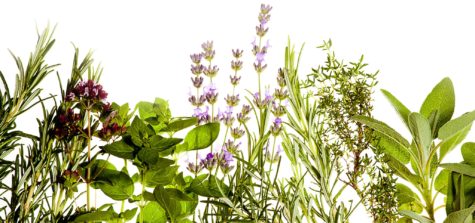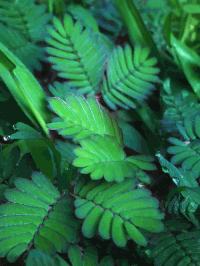Herbs A to Z
This is an A to Z index of the herbs listed here in the Encyclopedia of Herbology. It serves as a concise look at each of the herbs and their medicinal uses. Eventually this will be a really long list. But for now, it’s a little short.
Alexanders – Smyrnium olusatrum – for cleansing the blood and a digestive herb for strengthening the stomach, carried on ships as a remedy against scurvy, used to relieve stomach and urinary problems, a remedy for headaches, toothaches, swellings of the body, cuts and bruises, asthma and consumption, or tuberculosis.
Alfalfa – Medicago sativa – cleans and tones the intestines, takes harmful acids out of the blood, benefits the urinary system and intestines and detoxifies the body; contains eight enzymes which help assimilate protein, fats, and carbohydrates; helps nursing mothers produce more milk, improves blood cell production.
Angelica –Angelica archangelica – used for heartburn, intestinal gas, loss of appetite, overnight urination, arthritis, stroke, dementia, circulation problems, “runny nose,” nervousness and anxiety, fever, plague, and trouble sleeping.
Arborvitae –Thuja occidentalis – used for respiratory tract infections such as bronchitis, bacterial skin infections, cold sores, painful conditions including osteoarthritis, to loosen phlegm, boost the immune system, and increase urine flow. It has also been used to cause abortions.
Bald Money – Meum athamanticum – Mild aphrodisiac, appetite stimulant, anti-flatulence, detoxification, purification, diuretic, heart strengthener, stomach fortifier, menstrual stimulater, toner, and revitalizer.
Barberry – Berberis Aquifolium – treating infections, optimizing a sluggish liver, gastritis and general digestive weakness, kidney and gallbladder function, catarrhal problems, psoriasis, syphilis, haemorrhages, stomach complaints and impure blood conditions.
Bilberry – Vaccinium myrtillus – gastrointestinal disorders, diabetes, circulatory problems, as vision aids, to treat diarrhea, conditions of the heart and blood vessels, hardening of the arteries, varicose veins, decreased blood flow in the veins, and chest pain, chronic fatigue syndrome, hemorrhoids, osteoarthritis, gout, skin infections, kidney disease, and urinary tract infections.
Celery – Apium graveolens var. dulce – To repel mosquitoes. For menstrual cramps, pre-diabetes, lowering blood pressure, rheumatism, arthritis, and gout. Appetite control, renew joints, bones, arteries, and all connective tissues.
Coltsfoot – Tussilago Farfara – chronic or acute bronchitis, irritating coughs, whooping coughs and asthma, shortness of breath, can be used as an antiseptic wash for wounds and skin blemishes.
Elder Tree – Sambucus Nigra – bruises, sprains, wounds and chilblains, colds and influenza, hay fever and sinusitis, a very good spring tonic and blood cleanser, used as a vehicle for eye and skin lotions.
Fumitory – Fumaria officinalis – laxative and diuretic, eczema and other dermatologic conditions, good for the eyes, remove skin blemishes, skin diseases, conjunctivitis, cleanse the kidneys.
Ground Ivy – Glechoma hederacea – used in the traditional medicine of Europe going back thousands of years: to treat inflammation of the eyes, tinnitus, as well as a “diuretic, astringent, tonic and gentle stimulant. Useful in kidney diseases and for indigestion.” It has also been used as a “lung herb.”
Horseradish – Armoracia rusticana – an old household remedy useful wherever a stimulating herb is called for. It can be used in influenza and fevers; stimulates the digestive process whilst easing wind and griping pains; has been used in cases of urinary infection; and can be used for rheumatism and as a poultice in bronchitis.
Juniper – Juniperus, communis – mainly a urinary tract herb, used for urinary infections and as a diuretic. It is also being used for coughs, colds, fever, ulcers, wounds, boils, and for easing muscular or joint pain in chronic conditions such as gout, arthritis and rheumatism.
Lemon Balm – Melissa officinalis – has been used for centuries to help heal wounds, treat venomous insect bites and stings, induce relaxation and a sense of well being, improve appetite and aid digestion.
Lilac – Syringa vulgaris – used in both the Eastern and Western healing traditions to fight fevers, treat coughs and calm the stomach, also for their aromatic and calming effects.
Lovage – Levisticum officinale – mostly used for its diuretic properties in cases of water retention and urinary difficulties. Also for disorders of the stomach and feverish attacks in case of colic and for flatulence in children. It was also used for gravel, jaundice, and urinary problems.
Marsh Mallow – Althea Officinalis – cough, sore throat, mouth ulcers, respiratory problems, bronchitis, diarrhea, indigestion, weight loss, swelling, cuts, wounds, boils, eczema, psoriasis.
Mastic Thyme – Thymus mastichina – Used fresh or in dried form, its leaves are used to make an herbal tea that is considered useful in treating sore throats, catarrh and colds. also known as Spanish Marjoram.
Mulberry – Morus nigra, Morus alba – very high in antioxidants, contain large amounts of vitamin C as well as Vitamin K, Vitamin A, Vitamin E, really high levels of Iron, and Dietary Fiber; also high in minerals like potassium, manganese, and magnesium and contain the B vitamins, B6, Niacin, Riboflavin, and Folic Acid.
Nasturtium – Tropacolum majus – anti-microbial, bacterial infection, respiratory infections, bronchitis, influenza, the common cold, infections of the female reproductive organs, high in vitamin C.
Oregon Grape Root – Berberis Aquifolium – treating infections, optimizing a sluggish liver, gastritis and general digestive weakness, kidney and gallbladder function, catarrhal problems, psoriasis, syphilis, haemorrhages, stomach complaints and impure blood conditions.
Peppermint – Mentha x piperita – fevers, headaches, digestive disorders (especially flatulence) and various minor ailments, fevers and especially colds and flu, eases anxiety and tension, powerfully antiseptic, eases menstrual cramps, neuralgia, rheumatism and lumbago.
Queen Anne’s Lace – Daucus carota – used for urinary tract problems including kidney stones, bladder problems, water retention, and excess uric acid in the urine; and also for gout, a painful joint problem caused by too much uric acid.
Red Cedar (Eastern) – Juniperus virginiana – taken for cough, bronchitis, joint pai, water retention, and flatulence, to improve appetite and digestion, and as a treatment for fungal infections and worms. Also applied to the skin for wounds, skin rashes, hair loss, eczema, acne, warts, fungal skin infections, and hemorrhoids.
Slippery Elm – Ulmus Rubra – digestive disorders, gastrointestinal conditions, sore throats, ulcers, gout, arthritis, stomach ache, intestinal worms, cough, and bronchitis, respiratory irritations, abortifacient, skin conditions, vaginitis, hemorrhoids, toothaches, spider bites.
Spanish Marjoram – Thymus mastichina – Traditionally used in Spain and Portugal as an infusion to ease coughs, colds and influenza, Spanish Marjoram (Mastic Thyme) as an essential oil, is used in a plethora of immune boosting treatments.
Spignel – Meum athamanticum – Mild aphrodisiac, appetite stimulant, anti-flatulence, detoxification, purification, diuretic, heart strengthener, stomach fortifier, menstrual stimulater, toner, and revitalizer.
Thuja –Thuja occidentalis – used for respiratory tract infections such as bronchitis, bacterial skin infections, cold sores, painful conditions including osteoarthritis, to loosen phlegm, boost the immune system, and increase urine flow. It has also been used to cause abortions.
Wild Carrot – – Daucus carota – used for urinary tract problems including kidney stones, bladder problems, water retention, and excess uric acid in the urine; and also for gout, a painful joint problem caused by too much uric acid.
Wild Celery – Apium graveolens –useful in hysteria, promoting restfulness and sleep, and diffusing through the system a mild sustaining influence. See also Celery.
Yarrow – Achillea Millefolium – open wounds, nosebleeds, cuts, inflammation, hemorrhoids, headache, colds, flu, stomach ache, digestion, digestive, urinary systems, hay fever, asthma, respiratory problems, eczema, cold, flu, inflamed joints.
Rennie Luttrull: queen-annes-lace-seeds
Rosanna: Spignel aka Bald Money
Annamarie Squatrito: Fumitory
EILEEN Klinghagen: Pumpkin
Mahmudul Hasan: Celery


